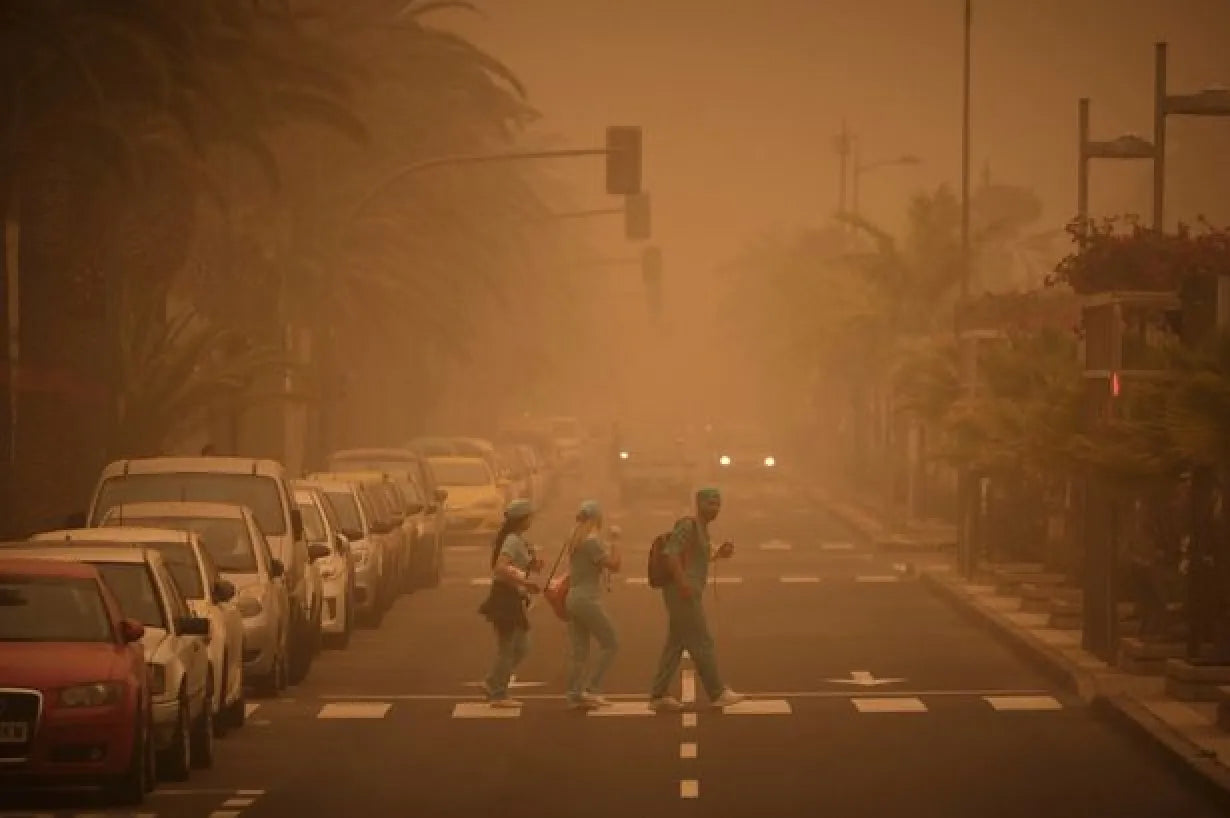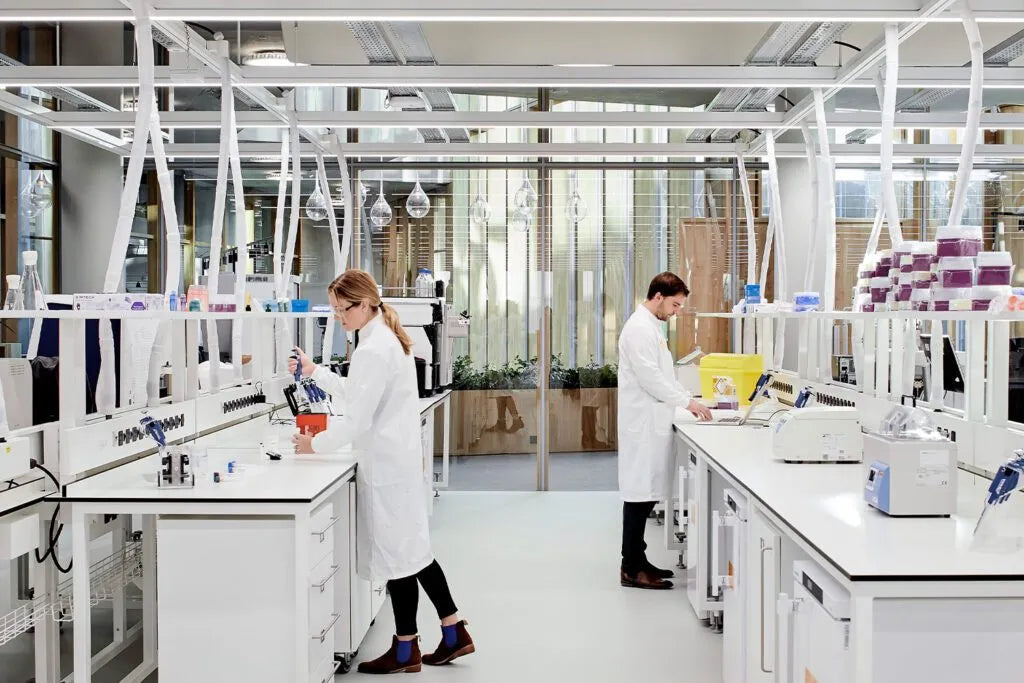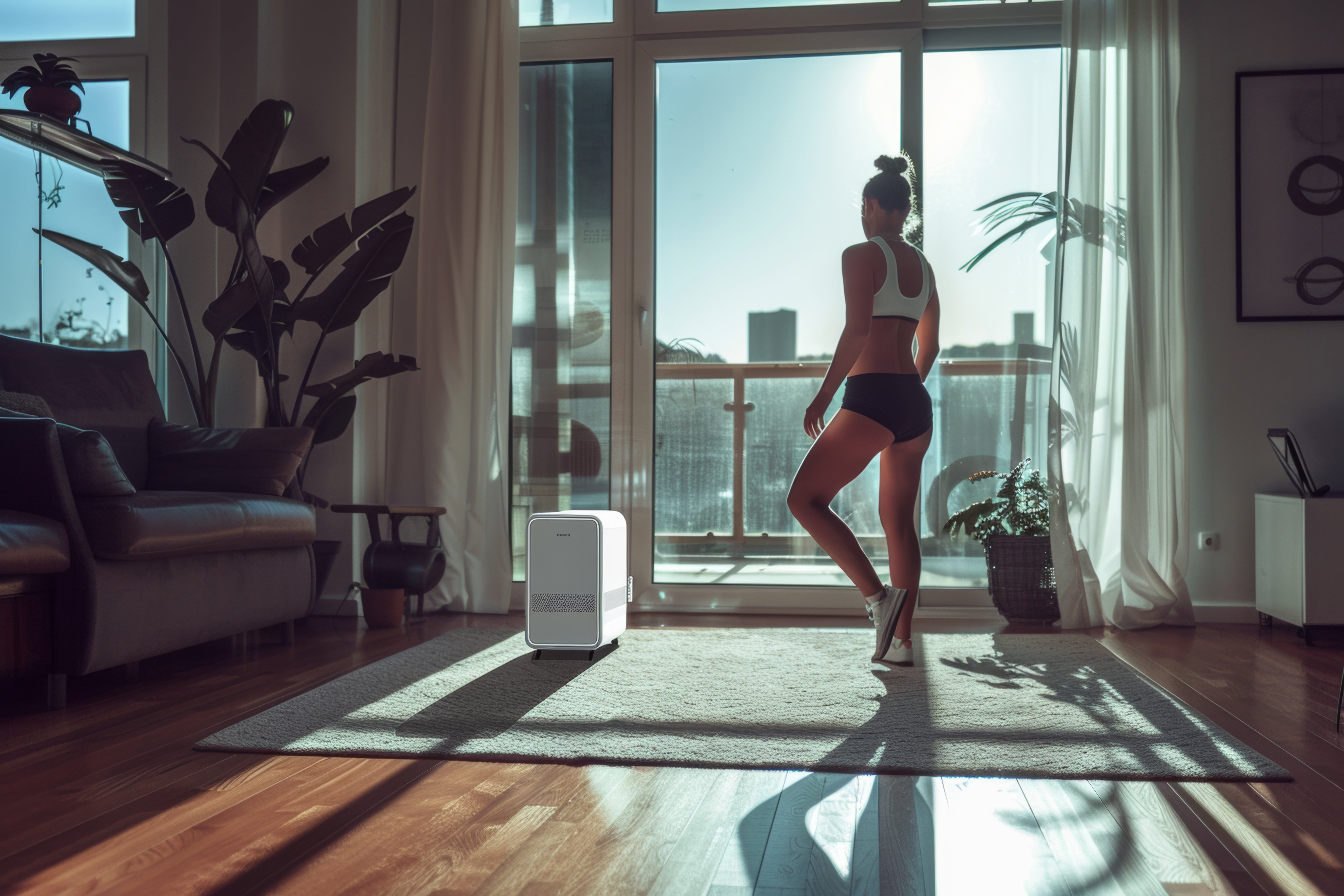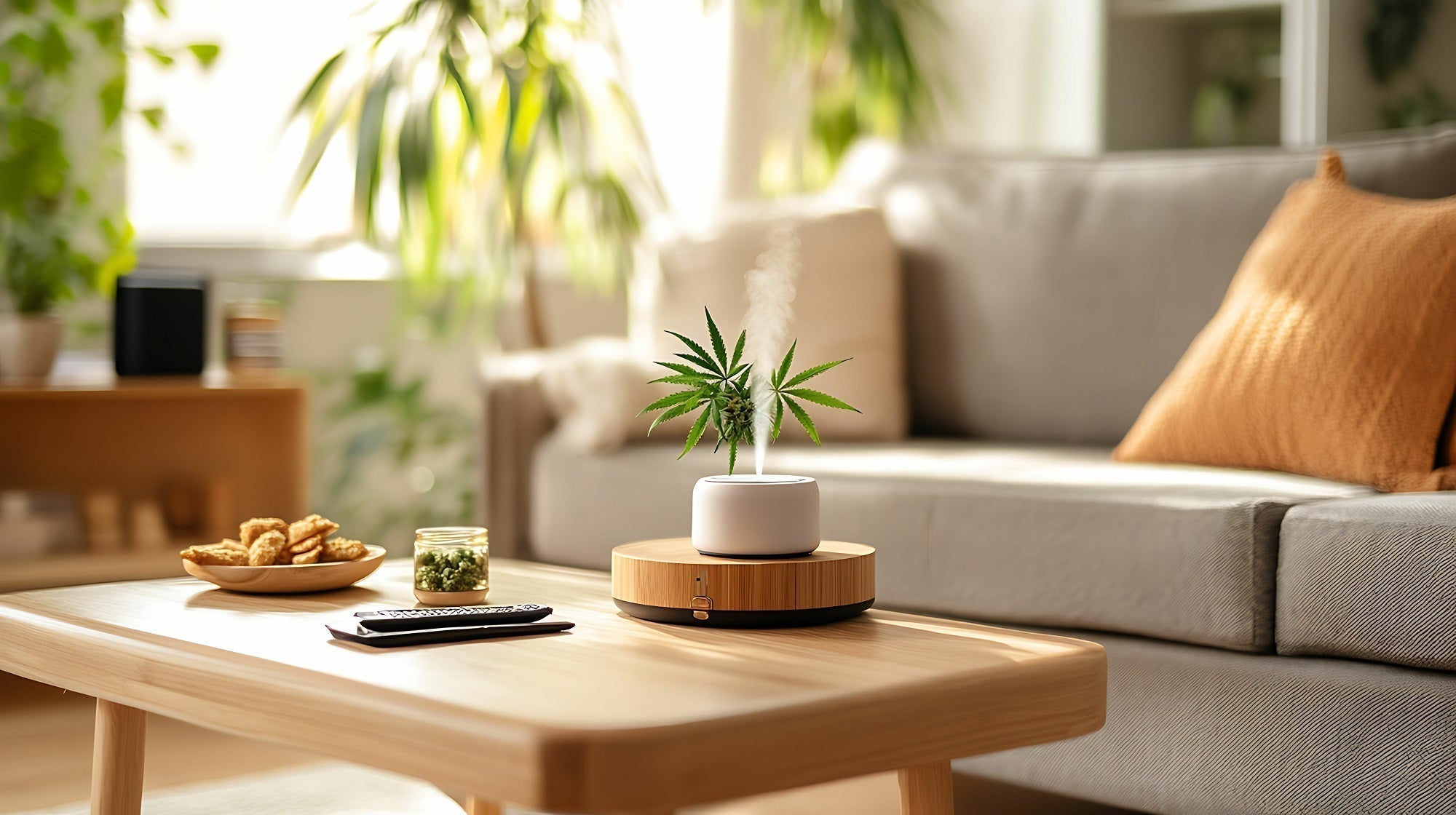Does Saharan dust affect your breathing?

Saharan dust is a type of mineral dust that originates from the Sahara Desert in North Africa and is carried by wind currents.

The composition of Saharan dust can vary, but it is typically made up of a variety of minerals, including silica, calcium, magnesium, and potassium. It can also contain organic matter, such as pollen and bacteria, as well as pollutants that have been picked up during transport, such as heavy metals and polycyclic aromatic hydrocarbons (PAHs). It is made up of tiny particles that are typically less than 10 micrometers in size, which means that they can be easily inhaled and can penetrate deep into the lungs. In fact, some of the particles can be so small that they are considered “ultrafine” and can even cross into the bloodstream.

Saharan dust can have negative impacts on air quality and human health. When Saharan dust levels are high, it can irritate the respiratory system, leading to coughing, wheezing, and difficulty breathing. It can also exacerbate existing respiratory conditions, such as asthma and chronic obstructive pulmonary disease (COPD). Exposure to high levels of Saharan dust has been associated with an increased risk of cardiovascular disease, including heart attacks and strokes.

One way to protect yourself from the negative impacts of Saharan dust is by using a MedicAir air purifier. MedicAir air purifiers work by removing pollutants and particles from the air, including those that are too small to see with the naked eye, such as Saharan dust. They use a combination of HEPA and Activated Carbon filters, along with UV-C light to remove particles and pollutants from the air.

Scientific research has shown that air purifiers can be effective at removing particulate matter from the air, including Saharan dust. A study published in the journal Environmental Pollution found that using an air purifier reduced the concentration of fine particulate matter (PM2.5) in a residential setting by up to 57%. PM2.5 is a type of particulate matter that is small enough to penetrate deep into the lungs and cause respiratory and cardiovascular problems.

Another study published in the Journal of Environmental Science and Health found that using an air purifier in a classroom setting reduced the concentration of PM2.5 by up to 87%. Our own study in a UK classroom found that our units created this level of pollutant reduction. This is particularly important for children, who may be more vulnerable to the negative impacts of air pollution.
In conclusion, Saharan dust can pose a risk to air quality and human health. Using a MedicAir air purifier is one way to protect yourself from the negative impacts of Saharan dust, as well as other types of air pollution. Scientific research has shown that air purifiers can be effective at removing particulate matter from the air, which can help reduce the risk of respiratory and cardiovascular problems. If you live in an area that is affected by Saharan dust, investing in a MedicAir air purifier may be a good idea to protect your health and improve the quality of the air in your home or office.

The composition of Saharan dust can vary, but it is typically made up of a variety of minerals, including silica, calcium, magnesium, and potassium. It can also contain organic matter, such as pollen and bacteria, as well as pollutants that have been picked up during transport, such as heavy metals and polycyclic aromatic hydrocarbons (PAHs). It is made up of tiny particles that are typically less than 10 micrometers in size, which means that they can be easily inhaled and can penetrate deep into the lungs. In fact, some of the particles can be so small that they are considered “ultrafine” and can even cross into the bloodstream.

Saharan dust can have negative impacts on air quality and human health. When Saharan dust levels are high, it can irritate the respiratory system, leading to coughing, wheezing, and difficulty breathing. It can also exacerbate existing respiratory conditions, such as asthma and chronic obstructive pulmonary disease (COPD). Exposure to high levels of Saharan dust has been associated with an increased risk of cardiovascular disease, including heart attacks and strokes.

One way to protect yourself from the negative impacts of Saharan dust is by using a MedicAir air purifier. MedicAir air purifiers work by removing pollutants and particles from the air, including those that are too small to see with the naked eye, such as Saharan dust. They use a combination of HEPA and Activated Carbon filters, along with UV-C light to remove particles and pollutants from the air.

Scientific research has shown that air purifiers can be effective at removing particulate matter from the air, including Saharan dust. A study published in the journal Environmental Pollution found that using an air purifier reduced the concentration of fine particulate matter (PM2.5) in a residential setting by up to 57%. PM2.5 is a type of particulate matter that is small enough to penetrate deep into the lungs and cause respiratory and cardiovascular problems.

Another study published in the Journal of Environmental Science and Health found that using an air purifier in a classroom setting reduced the concentration of PM2.5 by up to 87%. Our own study in a UK classroom found that our units created this level of pollutant reduction. This is particularly important for children, who may be more vulnerable to the negative impacts of air pollution.
In conclusion, Saharan dust can pose a risk to air quality and human health. Using a MedicAir air purifier is one way to protect yourself from the negative impacts of Saharan dust, as well as other types of air pollution. Scientific research has shown that air purifiers can be effective at removing particulate matter from the air, which can help reduce the risk of respiratory and cardiovascular problems. If you live in an area that is affected by Saharan dust, investing in a MedicAir air purifier may be a good idea to protect your health and improve the quality of the air in your home or office.
Recent Blogs
Independent Global Testing Confirms MedicAir’s Filtration Excellence
Two of MedicAir’s flagship systems – the MedicAir Pro and MedicAir Pro Max – have been independently verified for their outstanding performance in real-world environments, following rigorous testing conducted in Kuwait by international air filtration expert Dr Iyad Al-Attar.
2025/09/03
24 min read
Heatwaves and Indoor Air Quality: How MedicAir Safeguards Health and Productivity
The recent heatwave has brought swelteringly high temperatures across the UK, significantly impacting indoor air quality (IAQ) and indoor environmental quality (IEQ).
2025/07/14
33 min read
Why Indoor Air Quality Matters for Cannabis Grow Rooms
With MedicAir, you get more than just air purification–you get peace of mind, knowing your plants are thriving in a controlled, contaminant-free environment.
2025/04/11
42 min read


